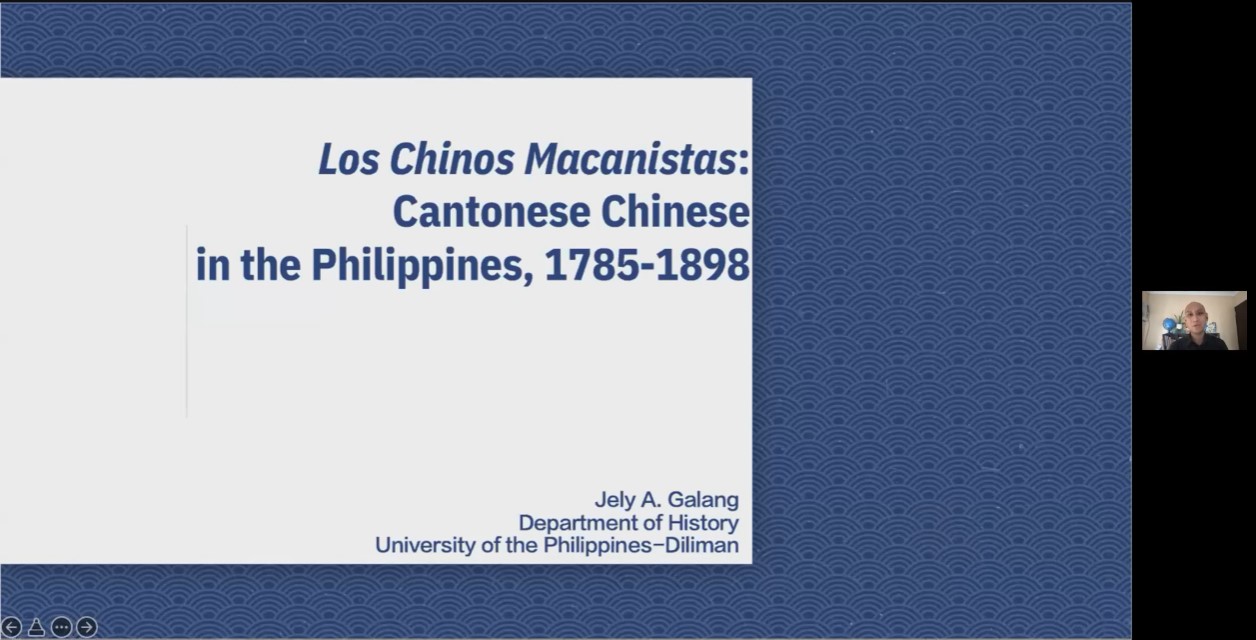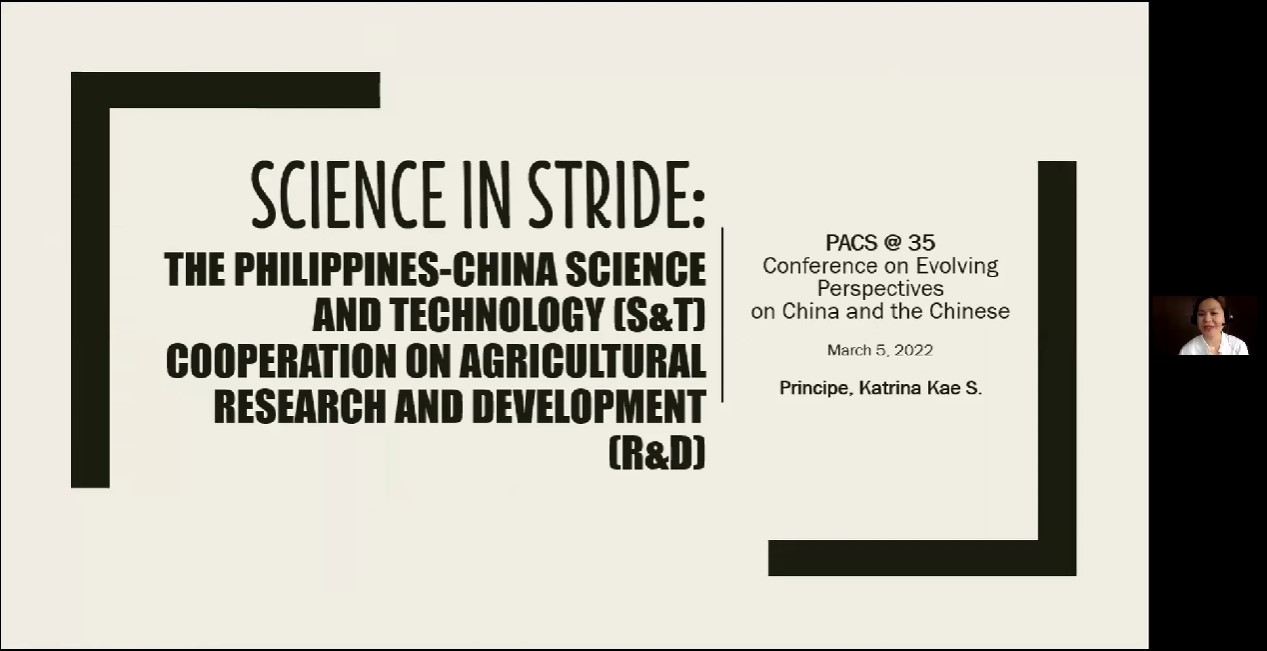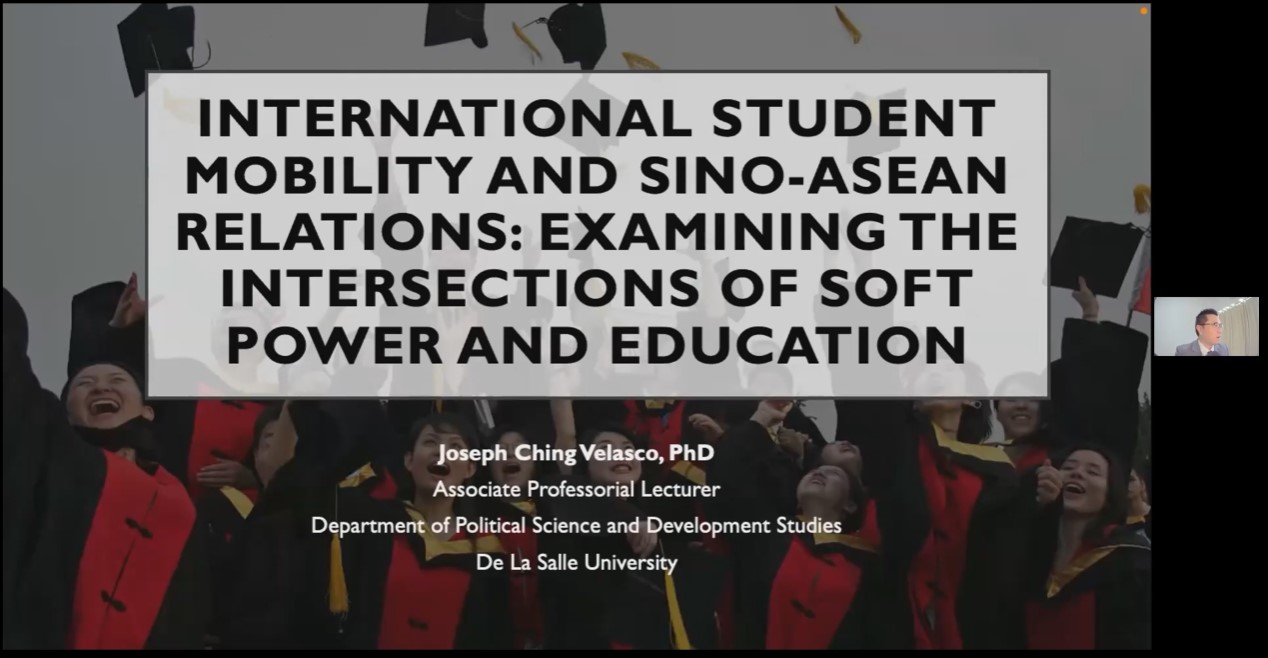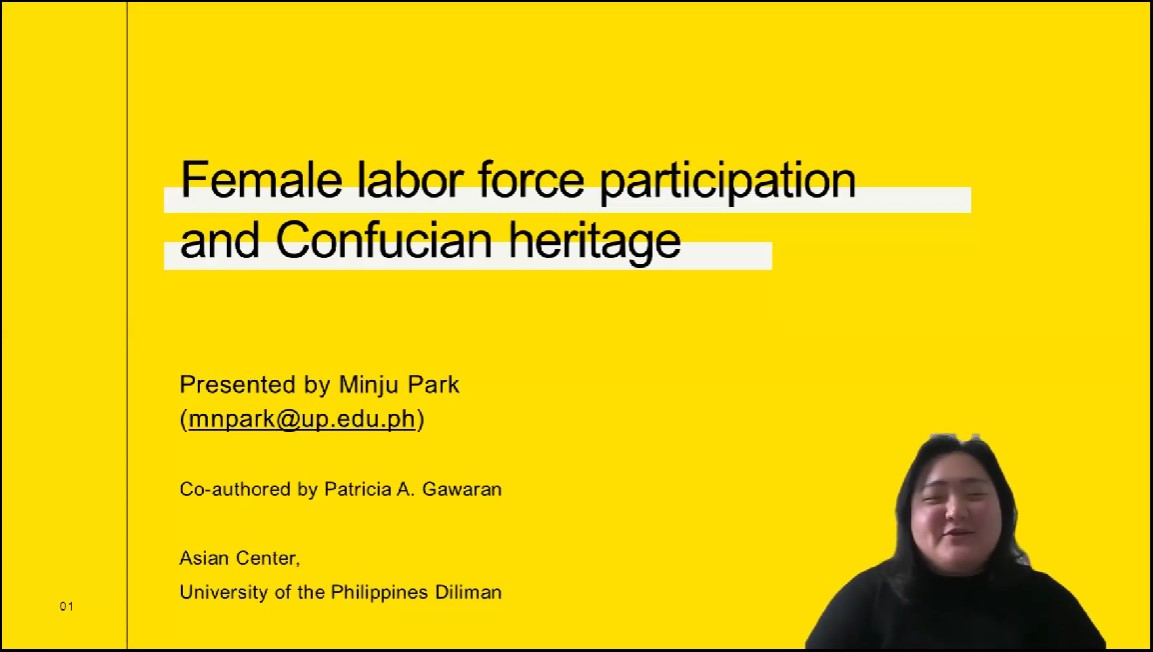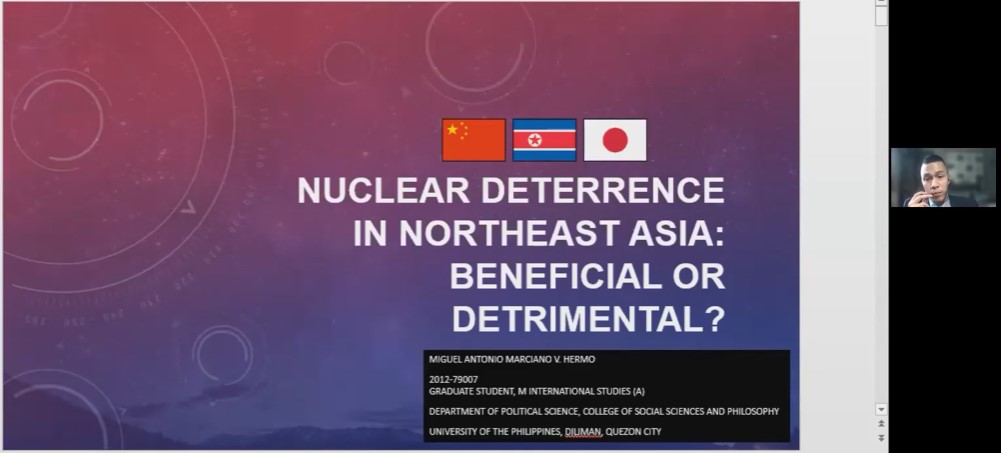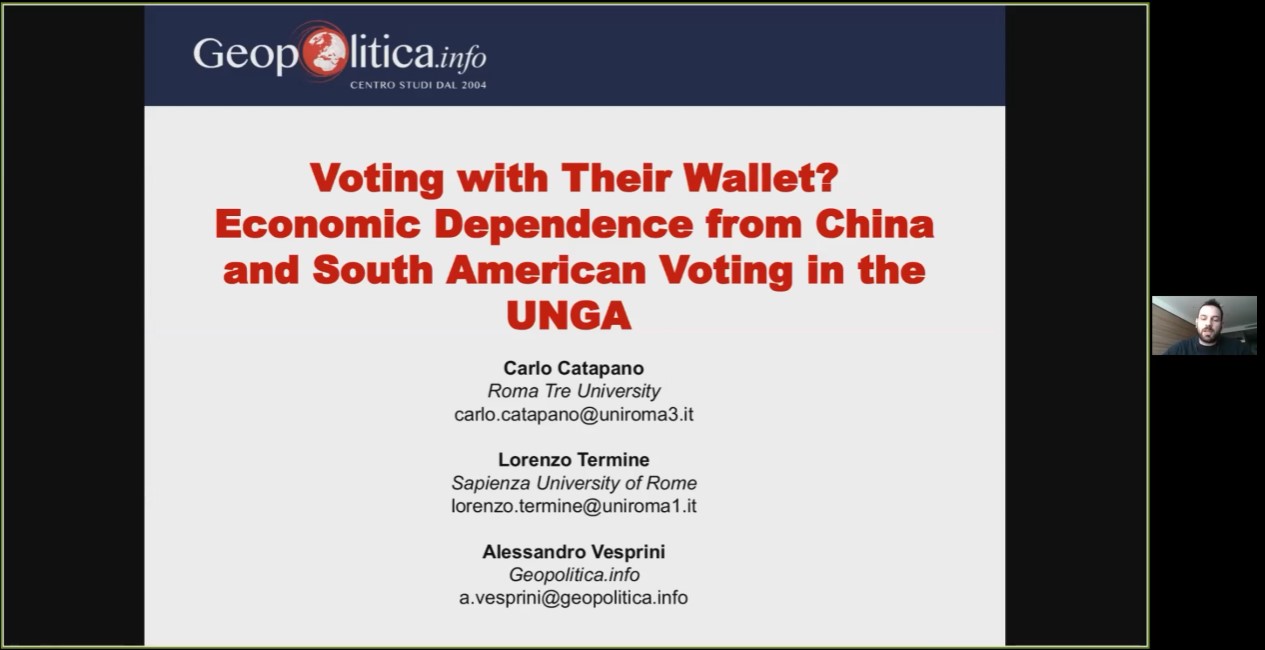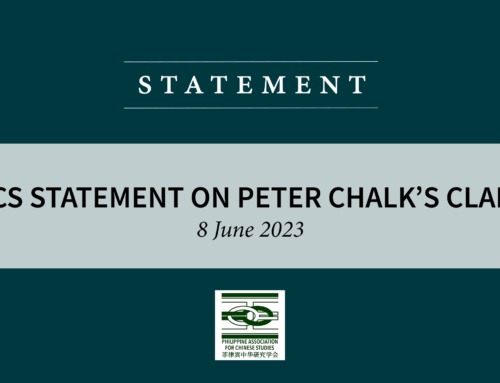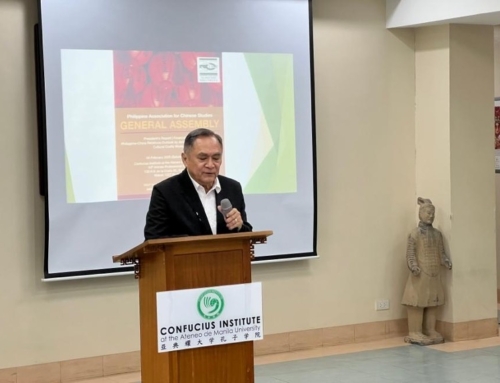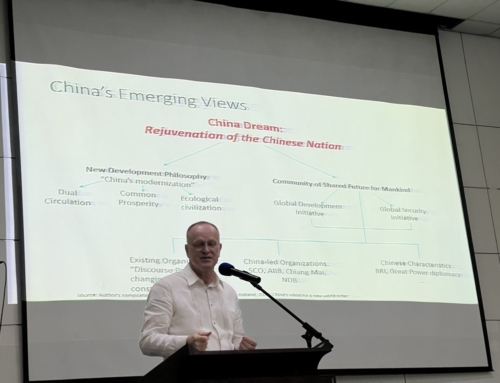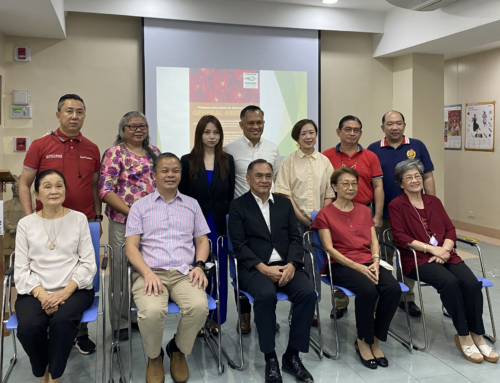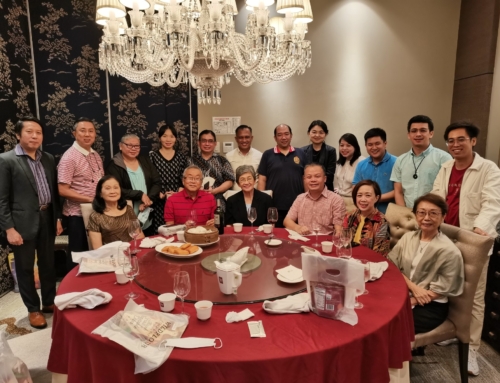To celebrate its 35th founding anniversary the Philippine Association of Chinese Studies (PACS) organized a conference entitled PACS @35 with the theme “Conference on Evolving Perspectives on China and the Chinese”. The conference will run through every Saturday of the whole month of March and will be presented via Zoom. The first session was held last March 5, 2022. It was a whole day event with the opening session in the morning and the first topic in the afternoon. The opening session was moderated by EG Dizon. The opening remarks were delivered by PACS President, Rommel Banlaoi. In his opening remarks, Dr. Banlaio narrated the history of PACS and highlighted its role in strengthening Philippines-China relations. It was followed by the keynote address delivered by PACS former President and Philippine ambassador to China, His Excellency Chito Sta. Romana. In his address, Ambassador Sta. Romana talked about the current state of Philippines-China relations and what could be its direction after the Duterte presidency. He noted the impact of improved bilateral consultation mechanisms in lowering tensions in the South China Sea. After the keynote address, China’s Ambassador to the Philippines, His Excellency Huang Xilian expressed his appreciation for PACS’ efforts in improving bilateral relations through a message of solidarity. The well-attended opening session was capped by a Q&A session involving scholars, media, and Chinese studies enthusiasts.
The afternoon session was dedicated to “Current Research on Chinese Studies in the Philippines: Findings from an Emerging Generation of Scholars.” The presentations highlighted research findings of emerging generations of Filipino and overseas scholars about China and the Chinese in history, science, and education as well as regional comparisons and dynamics in development, politics, and security. The first panel on the “Relations with China and the Chinese in history, science, and education” was moderated by Miss Ivy Ganadillo. Dr. Jely Galang spoke about the role and impact of the Cantonese Chinese in the Philippines between the 18th and 19th centuries utilizing rarely used Spanish archival materials. Ms. Katrina Kae stressed the importance of science and technology as areas of cooperation with China, especially in agriculture and rural development. Dr. Joseph Velasco examined the intersection between soft power and education in China’s relations with ASEAN countries. He noted that China’s recent outranking of the US in the quantity of R&D publications has been a pull factor attracting students to China.
The second panel focused on the regional comparisons and dynamics in development, politics, and security and was moderated by Miss Sharlene Cua. Park Minju did a comparative analysis of Confucianism in Asia as a factor in female labor force participation. Her findings revealed that S. Korea, characterized as the “most Confucian” has the largest gender gap compared to China, Japan, and Vietnam. Miguel Hermo tried to assess the beneficial or detrimental role of nuclear deterrence in relations involving the US, China, North Korea, and Japan. Last but not least, Alessandro Vesprini explored the possibilities of assessing the impact of relative economic dependence on China on South American voting patterns at the UNGA using linear regression analysis.
Every panel is capped by a Q & A session where participants can raise questions to the speakers. Please check our website for further information about forthcoming panels and sessions.
